OK…this is probably yesterday’s news in the Bear community (because, well, it’s yesterday’s news), but I thought it was pretty cool.
This is director (Clerks) Kevin Smith on the David Letterman Show the end of September.
OK…this is probably yesterday’s news in the Bear community (because, well, it’s yesterday’s news), but I thought it was pretty cool.
This is director (Clerks) Kevin Smith on the David Letterman Show the end of September.
A faerie friend, Roger Kuhn, has a new song and video out…check it out…
"What’s Your Name" made its national television debut this weekend and landed at #7 on the charts. Roger was nominated for three Pride In the Arts awards as the favorite male artist, song of the year and musical artist of the year, too. To vote, go here.
OK. I’m not quite sure…this might not be SUBJECT-subject, and it might stray just a tad into the "sexual objectification" area…perhaps when Ms. Jackie Beat deep throats the Oscar statue.
In any event, I laughed my ass off…and this is Gay culture on so many levels I lose count. Good taste? Bad Taste? Joker’s wild…
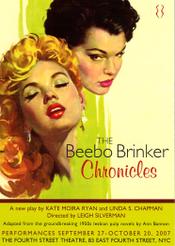 I don’t think there are books in the Gay men’s community that compare to Ann Bannon’s 50s and 60s Lesbian bodice rippers…Odd Girl Out…I Am A Woman…Women in the Shadows…and Journey to A Woman…but while the stories are women’s stories, there is a universal truth in them, about the coming out process in another time, when shame and shadows and anguish — what the Radical Religious Right would call "The Good Old Days — were the words that ruled Gay and Lesbian lives.
I don’t think there are books in the Gay men’s community that compare to Ann Bannon’s 50s and 60s Lesbian bodice rippers…Odd Girl Out…I Am A Woman…Women in the Shadows…and Journey to A Woman…but while the stories are women’s stories, there is a universal truth in them, about the coming out process in another time, when shame and shadows and anguish — what the Radical Religious Right would call "The Good Old Days — were the words that ruled Gay and Lesbian lives.
Bannon’s Odd Girl Out was the second biggest selling paperback of 1957…something she didn’t learn until 30 years later! The books were popular when they were first released, and have proved a remarkable longevity especially for pulp fiction, being reprinted in three different issues, and several languages. That iconic longevity, the characters and the books themselves earned her the title of "Queen of Lesbian Pulp Fiction." When depictions of Lesbians in written literature were quite rare, and what there was was dismal and unhappy, her books set her apart from other authors who wrote about Lesbianism. She has been described as "the premier fictional representation of US lesbian life in the fifties and sixties," and that her books, "rest on the bookshelf of nearly every even faintly literate Lesbian."
Last night we went to see the Hourglass Group’s production of Kate Moira Ryan and Linda Chapman’s The Beebo Brinker Chronicles, an adaptation of three of Bannon’s books. Ms. Bannon was in attendance, looking stunning, and receiving the adulation of her fans. All of us. It was marvelous. Can’t recommend this play highly enough. If your first thought is "I’m not a Lesbian, what would this have to say to me?" you couldn’t be more mistaken. The writers could have easily played this for camp, but they didn’t. It is poignant, witty, thoroughly entertaining, smart, funny theater. There’s a fine cook’s hand at play, with just a soupçon of camp…enough to make you laugh out loud, partly from the humor, partly from the buzz of recognition. The writers (and Bannon) are word perfect in capturing the early Lesbian and Gay "zeitgeist," all the lies we all bought into before we knew we were more than the only queer on the planet.
If Logo was programming like this, instead of the dreck like "Rick and Steve" I’d probably be watching Logo a helluva lot more. This material could…should…easily be translated into one hot television series…Desperate Lesbians!
If you are, as they say, "of a certain age," Lesbian or Gay, you will see yourself up on the stage ( there is a bravura performance by Obie winner, David Greenspan, the likes of which we haven’t see since Take Me Out…as well as the marvelous performance…and buff body…of Bill Dawes, the cuckolded husband Laura leaves.)
If you’re lucky enough to have been born "post Stonewall" you need to know these stories. This is your heritage. This is where Stonewall came from.
There is something incredibly important about the "particularity of voice"…which is why we continue to insist that White Crane remains for and by Gay men. Welcoming, as they say, but we only purport to speak for ourselves as Gay men. Last night was an opportunity to hear the Lesbian voice…and it was proud and clear and true. For all of us. Brava to everyone who had anything to do with this play. By the way….Beebo playwright, Linda Chapman and her partner, Obie-award winning actor, Lola Pashalinski, have a featured article inthe fall White Crane, Lovers.
A limited run…through October 20. Tickets available here.
There are very few artists who we revere as much as Joni Mitchell. In her complete and utter disgust with the music industry, a few years ago, she walked away and announced that she would never record again.
Maybe there’s something in those cigarettes? Or maybe there’s something in Starbucks coffee…we’re going to have to rethink our preference for Peet’s on the basis of this alone, I would say…but Joni has returned. And in this wonderful video, she speaks of her new multi-media project. Give a listen…this is the kind of truth telling that makes steel dance and glass sing. The music is available tomorrow, September 25.
![]() I was at Farm Aid yesterday, standing in line at one point to use their disgusting shitters, when I saw a reporter and cameraman from local Faux News sticking their camera’s in people’s faces for "man on the street" shit for their despicable programming. There were about 35,000 people in the crowd, and one of them was a sort of tallish, straight man (I believe…at least he and I have never sucked one another’s cocks) who seemed to be being silly and enjoying it…so while this "reporter" (I have a hard time using that with respect to Faux News) was interviewing this other person, Mr. Silly was prancing along behind camera, pulling up his shirt to display his attractive torso for the camera (how they would have even got it in the shot is debatable…the camera was tight in on the interviewee, and there probably wasn’t a whole lot of background showing behind him.) Mr. Silly’s friends looked on, slightly embarrassed, it seemed, by their friend’s antics, but the interview proceeded unabated.
I was at Farm Aid yesterday, standing in line at one point to use their disgusting shitters, when I saw a reporter and cameraman from local Faux News sticking their camera’s in people’s faces for "man on the street" shit for their despicable programming. There were about 35,000 people in the crowd, and one of them was a sort of tallish, straight man (I believe…at least he and I have never sucked one another’s cocks) who seemed to be being silly and enjoying it…so while this "reporter" (I have a hard time using that with respect to Faux News) was interviewing this other person, Mr. Silly was prancing along behind camera, pulling up his shirt to display his attractive torso for the camera (how they would have even got it in the shot is debatable…the camera was tight in on the interviewee, and there probably wasn’t a whole lot of background showing behind him.) Mr. Silly’s friends looked on, slightly embarrassed, it seemed, by their friend’s antics, but the interview proceeded unabated.
In any event…Mr. Silly did this a couple of times and all of a sudden, out of the crowd, came this uniformed cop, with a lot of brass on his starchy shirt. He commanded Mr. Silly, "Come over here!"…and Mr. Silly complied. And from my vantage point of about 20 yards away, you could see that Mr. Silly was getting quite the talking-to tongue-lashing, after which Brass Ass Starched Shirt marched away, and Mr. Silly’s friends had to sort of calm him down it seems, putting their arms around him and cooing calming things into his ear.
 I couldn’t believe it! How DARE Mr. Silly interfere with Corporate Media’s shooting of the event!? And the amazing thing was the Faux News folks didn’t even need to ASK for this police escort, he jumped in unbidden to "preserve the peace" (yeah…right) like this silly prancer was creating some kind of threatening nuisance. Not even the Faux people seemed to think he was interfering with their interview, either. It was one of those small, little moments that makes my heart sink.
I couldn’t believe it! How DARE Mr. Silly interfere with Corporate Media’s shooting of the event!? And the amazing thing was the Faux News folks didn’t even need to ASK for this police escort, he jumped in unbidden to "preserve the peace" (yeah…right) like this silly prancer was creating some kind of threatening nuisance. Not even the Faux people seemed to think he was interfering with their interview, either. It was one of those small, little moments that makes my heart sink.
.
The event was…an event. Seems it actually has to be "Earth Day" and a "Save the Earth" concert, and not just farmers, for some people to remember not to throw their trash on the ground when they’re done swilling their beer and chowing down on their organic corn dogs, as I saw repeatedly. Obviously it was a small percentage of the 35,000 or so people in attendance, but then that’s all it takes to sort of filthy things up, isn’t it?
.
.
It was a nice day, not too hot, the music was good. Or at least it got better. Early sound left much to be desired. The sound guys just didn’t seem to get on the ball until later when the headliners showed up.
Counting Crows (who I wouldn’t know, other than by name, if they showed up at my front door); the ever cute Dave Matthews, singing and playing acoustic guitar fantasitcally with one accompanist. Ditto the Allman Brothers (electric), John Cougar Mellencamp (really great), adn Neil Young, who was magnificent, acoustic and quite mellow. At the end of the day, it was lovely to lay in the grass, swathed in the baby-blanket softness of the night air, and look up at the night sky and be serenaded by Neil Young singing:
.
Workin’ hard every day
Never notice how
the time slips away
People come, seasons go,
We got something
that’ll never grow old.
.
I don’t care
if the sun don’t shine
And rain keeps pouring
down on me and mine
‘Cause our kind of love
never seems to get old
It’s better than silver and gold.
.
I used to have a treasure chest
Got so heavy I had to rest
I let it slip away from me
Didn’t need it anyway
So I let it slip away.
.
I don’t care
if the sun don’t shine
and rain keeps pouring
down on me and mine
‘Cause our kind of love
never seems to get old
It’s better than silver and gold.
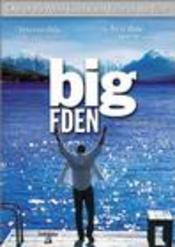 I got home late last night…missed the season finale to John From Cincinnati and the finale of Big Love (which I love…written by Gay couple Mark V. Olsen and Will Scheffer) and I was flipping around the dial and dropped by Logo while I was waiting for it to get late enough so I could see the Perseids, on the roof.
I got home late last night…missed the season finale to John From Cincinnati and the finale of Big Love (which I love…written by Gay couple Mark V. Olsen and Will Scheffer) and I was flipping around the dial and dropped by Logo while I was waiting for it to get late enough so I could see the Perseids, on the roof.
Imagine my surprise to be completely drawn into Big Eden, the first feature film made in 2000 by director, Thomas Bezucha, who went on to make The Family Stone…
Well…"real" if you happen to be having your first Whitney show as an artist and you come from a perfect little Northern Exposure-type town in Montana and… but you know….Hollywood at its best.
The cast includes Arye Gross, who I recognize, and remember from For  the Boys and so many other character roles…he’s one of those great character actors you know but can’t quite place…as the lead for once.
the Boys and so many other character roles…he’s one of those great character actors you know but can’t quite place…as the lead for once.
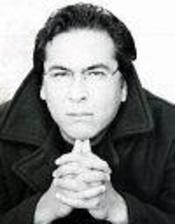 And Eric Schweig, a handsome, native American actor who gets to play just a handsome man who happens to be Native American instead of having to be a Noble Indian.
And Eric Schweig, a handsome, native American actor who gets to play just a handsome man who happens to be Native American instead of having to be a Noble Indian.
And the redoubtable Louise Fletcher, no less, along with a host of, as mentioned, the late, lamented Northern Exposure-worthy characters.
A romance. You’ll laugh. You’ll cry. Lovely. Big Eden…good actors…good story…good movie.
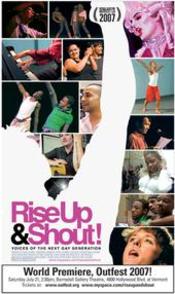 Last November, the Gay Men’s Medicine Circle of Los Angeles, under the guidance of a committee headed by Don Kilhefner, Malcolm Boyd and Mark Thompson produced a talent showcase entitled Rise Up & Shout!: Voices of the Next Gay Generation. The evening showcased a new generation of Gay and Lesbian artists, but more importantly it created an opportunity for an older Gay generation to interact in a supportive manner with a younger Gay generation, which, in addition to actually being able to learn from their elders, were probably introduced to the idea of “community elders.” A win-win situation for one and all.
Last November, the Gay Men’s Medicine Circle of Los Angeles, under the guidance of a committee headed by Don Kilhefner, Malcolm Boyd and Mark Thompson produced a talent showcase entitled Rise Up & Shout!: Voices of the Next Gay Generation. The evening showcased a new generation of Gay and Lesbian artists, but more importantly it created an opportunity for an older Gay generation to interact in a supportive manner with a younger Gay generation, which, in addition to actually being able to learn from their elders, were probably introduced to the idea of “community elders.” A win-win situation for one and all.
The evening, at the Barnsdall Gallery Theater in Hollywood, was presented as a benefit for White Crane Institute and was filmed by Brian Gleason. The documentary film he made premieres this week. We had an opportunity to speak with Gleason about his involvement in Rise Up & Shout!:
WC: Can you describe the Rise Up & Shout! project and tell us what attracted you to it?
Brian Gleason: Rise Up and Shout! is a two part project for me. The first part was my involvement with the intergenerational committee that created the idea, planned and successfully executed the event, Rise Up and Shout!, which was an evening performance by and for Gay youth that took place on September 9, 2006. Not long after my involvement with the committee, I came up with the idea of a documentary film project centered around the event, and began directing that effort, which continues, and has its most recent culmination in the film world premiere at Outfest, on Saturday July 21, 2007.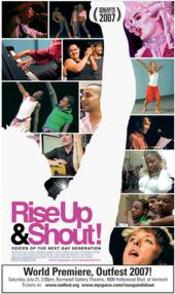
My interest in directing the documentary goes back to my move from San Francisco to Los Angeles in early 2004. I moved down to Los Angeles to work more closely with people like Don Kilhefner and Mark Thompson and Malcolm Boyd; three people who, to me, have really earned the title of elders in the Gay community. I started having phone conversations with Don and Mark a few years back, when I was still living in San Francisco, because I became so interested in their writings, where they spoke about the deeper roots of Gay history and culture and what it really meant to be Gay: that it was not just a sexual orientation but something much more, something that went back thousands of years in culture and art and history, surfacing in epics such as Gilgamesh, the writings of Plato, the work of Walt Whitman and others throughout the years.
Well, eventually I made the move to Los Angeles, and I have been working very closely with all three of these great men, and have formed very deep friendships with all of them. The idea initially came to me to interview them for some sort of book or video project, but then when we all started working on Rise Up And Shout!, it struck me that the most interesting aspect of this whole project was the intergenerational dialog that was occurring – that’s the theme, or the emotional "punch" that really hit me: finally I was experiencing Gay community: elders, adults and youth working together to help each other find their voice, to discover something valuable and lasting about themselves as Gay men. That became the focus and theme of the documentary, and I hope I’ve been able to adequately portray that in the film.
WC: Beautiful. It’s certainly a motivation White Crane understands. We’ve done a couple of issues addressing similar ideas, and worked closely with all the people you mention, too. I guess, in the interest of full disclosure for the readers, we ought to let readers know that White Crane Institute was a beneficiary of the event and I attended it. It was wonderful.
I suppose we all have ideas of what "intergenerational" dialog means. How difficult was it for you to assemble the cast you had? And what was the biggest surprise for you personally?
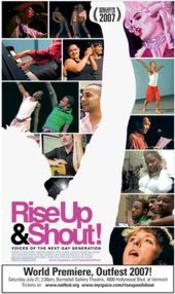 Brian: Assembling the cast literally took a year. We held something like three or four auditions, and most of the kids were quite talented, but it really became a matter of representing diversity of voice ‒ in other words, we didn’t want 15 opera singers, or 15 poets, etc. ‒ we needed a real mix to represent all the various voices in the Gay community. And we got it ‒ by the time we finished we had everything from glam opera to lesbian hip hop to classical poetry, film and everything in between – but this took everyone on the committee digging into all their email lists and their friends email lists and phoning and canvassing with audition posters. It was a hell of an effort, to put it mildly, but a fun and engaging one, and also one that harnessed every generation represented on the committee: some of the elders were able to find and audition the more classical acts: vocalists, etc., while some of the youth on the committee were able to find rappers, hip hop dancers and the like.
Brian: Assembling the cast literally took a year. We held something like three or four auditions, and most of the kids were quite talented, but it really became a matter of representing diversity of voice ‒ in other words, we didn’t want 15 opera singers, or 15 poets, etc. ‒ we needed a real mix to represent all the various voices in the Gay community. And we got it ‒ by the time we finished we had everything from glam opera to lesbian hip hop to classical poetry, film and everything in between – but this took everyone on the committee digging into all their email lists and their friends email lists and phoning and canvassing with audition posters. It was a hell of an effort, to put it mildly, but a fun and engaging one, and also one that harnessed every generation represented on the committee: some of the elders were able to find and audition the more classical acts: vocalists, etc., while some of the youth on the committee were able to find rappers, hip hop dancers and the like.
And there were a lot of surprises, most all of them working out really well. Jim Pentecost, a Broadway veteran, directed the show, and he knew all along that this was going to be a right-up-to-the-minute effort, and was able to keep us more or less calm throughout this whole process. I mean right up to a few weeks before the show, I think we had only sold like 8 tickets, and we wanted to fill a 300 seat house for the kids! But we did it. The biggest surprise for me personally was spending the afternoon interviewing Justin Miles, a 21 year old HIV positive poet, former drug addict and prostitute, who now lives with his Mormon parents in Simi Valley, has kicked the drug habit, and is pursuing a college degree. Justin opened right up to me, and was totally honest without being grandiose, and showed a wisdom way beyond his years. He talked straight up about the struggle with drugs, sex and love, coming out, trying to turn his life around and start anew ‒ all by the age of 21! He didn’t give me some sermon about the horrors of his past and how others should avoid this or that or do this or that, he simply talked openly about his situation, owned up to the choices he had made, talked honestly about his fears at the same time as his hopes for his future. It was really endearing and provocative, and if I’ve been able to capture just a little of that in the film then I’m happy.
WC: That’s a great story and pretty unusual for someone to be able to overcome the whole "poor me victimhood." What are some of the other stories that are in the film?
Brian: Well, another story, or I guess it’s more of a theme around which a few stories are wrapped, was the meetings, conversations and time spent together between some of the youth and elders. It’s funny, making a documentary, sometimes you capture moments that just happen and sometimes you "prime the pump" a little and see what happens.
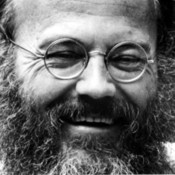 Well, sometimes the youth performers and the "elder" committee
Well, sometimes the youth performers and the "elder" committee  members from Rise Up just happened to run into each other, strike up a conversation, work together at rehearsals, etc. and sometimes I arbitrarily paired up the two groups. I did this with a couple of the performers but one in particular really struck me: I paired Steven Liang, an 18-year-old Chinese American Gay man who performed poetry readings with Mark Thompson, the producer of the Rise Up event and the former editor of the Advocate magazine. I had Mark give Steven a tour of his photojournalist career — Mark’s photos of people like Paul Monette and Robert Mapplethorpe and Ram Dass, Fellow Travelers, were hanging in a gallery in Silverlake, so I brought in Steven Liang and had Mark give him his own tour, when the gallery was closed. It was pretty incredible to watch Steven as he learned about these people — many of them he was not even aware of – and really got his first lesson in Gay culture and history. I realized how unavailable so much of our culture and history is to younger Gay people, and it became a real motivation for continuing to plow through all the difficulties and make the film.
members from Rise Up just happened to run into each other, strike up a conversation, work together at rehearsals, etc. and sometimes I arbitrarily paired up the two groups. I did this with a couple of the performers but one in particular really struck me: I paired Steven Liang, an 18-year-old Chinese American Gay man who performed poetry readings with Mark Thompson, the producer of the Rise Up event and the former editor of the Advocate magazine. I had Mark give Steven a tour of his photojournalist career — Mark’s photos of people like Paul Monette and Robert Mapplethorpe and Ram Dass, Fellow Travelers, were hanging in a gallery in Silverlake, so I brought in Steven Liang and had Mark give him his own tour, when the gallery was closed. It was pretty incredible to watch Steven as he learned about these people — many of them he was not even aware of – and really got his first lesson in Gay culture and history. I realized how unavailable so much of our culture and history is to younger Gay people, and it became a real motivation for continuing to plow through all the difficulties and make the film.
WC: Yes… we’re very familiar with Mark’s photos…White Crane is touring the exhibit around the country right now. It’s here in NY as we speak and it goes to Philadelphia and Washington D.C. next.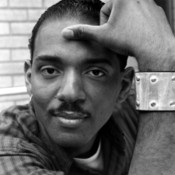
Brian: By the way, I use the terms youth and elders because I think, first of all, it evokes a good description of the intergenerational theme, but also because it’s the old tribal term, from back in the time when community was much more vital and youth and elders were always together, learning from each other and contributing back to the community. This is something that I think is really lost today, particularly for Gay people, since we come in this kind of Diaspora from towns all over the country into these cities where we don’t know each other, are separated in many ways from our families and original cultures, and have to quickly learn to adapt, get along and build a life, often very much alone.
WC: Who were your elders?
Brian: Well, as much as it sounds like a cliché, I’d have to say my Dad was my first elder. Of course it wasn’t always that way, growing up Gay and liberal in an Irish Catholic Republican family, but I’ll never forget one day when I was very young and tried to run away from home — Dad got very angry at first, but then I noticed him starting to cry, which he of course tried to cover up, and he ended up by saying "you’ll always have a place in my home, no matter what" and it turned out to be true over the years, and helped my coming out more than you can imagine. It’s ironic, as conservative as he was he taught me what acceptance really means.
WC: That’s actually very sweet, and I’m glad it was the first response you had. And who were your first Gay elders?
Brian: My first gay elders were Don Kilhefner, Mark Thompson and Malcolm Boyd. They were one of the big reasons I moved down to Los Angeles from San Francisco several years ago. When I was living up in SF, I called Don out of the blue one day, because I was having very strange dreams and I read an essay of his on dreams, so I Googled his name and found his number and to my surprise he picked up the phone and we talked for almost an hour. It was the first conversation I ever had where I really began to feel part of the larger Gay community — the cultural community that has fought for our rights over the years — and paved the way for an understanding that we are much much more than just a sexual orientation.
WC: Such as…?
Brian: We are, as Harry Hay put it, a separate people whose time has come, a people with a unique outlook on life and a significant contribution to make to world culture. Mark and Malcolm really welcomed me down here in Los Angeles, and without their support as friends and elders, this film would never have been made. The event, Rise Up and Shout, was essentially a year-long nose-to-the-grindstone effort that came out of a simple lunch between Mark and Don where it was decided to put on an event for gay youth. That’s grassroots community work, and people like Mark, Malcolm and Don have done it for decades now, and taught me that it’s our generation’s turn to take over and continue this vital work, to help gay people come together, build community and understanding, get over the homophobia and let the world know that we’ve come with a real gift to give the world — look at how many gay people are artists, healers, visionaries!
WC: In the Gay community, the problem seems to be one of opportunity with respect to that "Generation Conversation"…other than Rise Up & Shout! which was obviously a wonderful opportunity for everyone involved, I know Don Kilhefner has been making a lot of these situations happen. Have you worked with him on other projects?
Brian: Don and I have worked on several projects together, most notably the workshops for the group that he co-founded a few years back, the Gay Men’s Medicine Circle, a grass roots community organization here in Los Angeles that works with many gay men on issues such as HIV, crystal meth, and other psychological or spiritual aspects of their lives. The Circle has co-sponsored several major events, including Rise Up and Shout last year, and, a couple years back, the Standing On The Bones of our Ancestors conference, a weekend long seminar on the need for greater intergenerational dialog in the gay community. Don has been a professional mentor for me in my psychotherapy career, and has, more than anyone, taught me the importance of community, and what that word really means: that we gay men need to start assuming responsibility for each other.
WC: You’ve talked about Justin and Liang. Is there another favorite story in the movie you can talk about?
Brian: Sure ‒ it seemed like a little story at the time, and it kind of operated like a motif running just below the surface of the film, but when I started watching the footage I really noticed how Malcolm Boyd, 84-year-old priest and author and a member of the Rise Up committee, connected in a profound way with the performers and the other members of the committee. This event was really important for him, and it reminded me of something my Dad used to talk about: as he got older he really missed the opportunity to connect with the younger generations (outside his own children). I think everyone wants to give back in some way or another, but it reaches a kind of critical mass when you get older, and you really start to understand, and feel in a deep way, the connection between the generations and your role in that connection ‒ when that’s missing, as it really is in the modern world, I think it really affects the oldest generation (and also, in a profound way, the youngest generation) the most.
WC: Knowing Malcolm, that’s not hard to believe. His connection with this magazine has been a profound experience for us, too. Mark [Thompson], too. They’re both very passionate about the community of Gay men and their well-being.
So…the film premieres next week in Los Angeles [Rise Up And Shout!, will have its world premiere this summer at Outfest! Saturday, July 21, 2:30 at the Barnsdall Gallery Theatre 4800 Hollywood Blvd, Los Angeles, CA 90027 near Vermont] Is there anything that you wished you could have gotten that you missed? And, any final thoughts?
Brian: Well, I always feel like I missed something, I just think that’s part of the process. I love that Martha Graham quote, "No artist is satisfied. Ever." And I really feel it with this, my biggest artistic endeavor to date. It’s a strange, somewhat painful, somewhat wonderful feeling that keeps you going after that elusive "thing" in art, love, anything worthwhile.
As far as having missed anything specific, I’d say a couple things: I would have loved to have spent more time with the GLASS kids, but it was just impossible due to all the restrictions in the county youth foster system; and I would have loved to have followed all the kids more, found out what they are up to now, how they are doing after Rise Up and Shout, what impact it had on their lives – but I’m thinking maybe that will be the subject of my next documentary (he says, paying off credit card bills and trying to catch up on sleep)!
Final thoughts: let’s see, well, it’s been a real journey, and it is very true what people say who undertake projects like this: it almost kills you, and at the same time, it’s incredibly rewarding and makes you who you really are, and to me, that’s the whole point.
The Rise Up and Shout! event and film were put together by many hands in addition to Brian Gleason, including: Broadway director and producer Jim Pentecost, who directed the event Rise Up and Shout!, Don Kilhefner, Mark Thompson, Malcolm Boyd, Frank Rodriguez, Joey Shanley, Ethan Schvartzman, Virsil Mitchell, Elijah Cohen, Karen Minns, Kevin Yoshida, and all the members of the Gay Men’s Medicine Circle
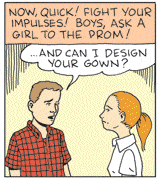 So much has been written about the Gay Bomb the pentagon was(?) working on.
So much has been written about the Gay Bomb the pentagon was(?) working on.
Ruben Bolling of Tom the Dancing Bug proves once again how insightful he can be.